Peter Bing opened The Well-Read Muse with the following inscription taken from the opening soliloquy of Plautus' Pseudolus, Act I Scene 4:
sed quasi poeta, tabulas quom cepit sibi,
quaerit quod nusquamst gentium, reperit tamen,
facit illud veri simile, quod mendacium est,
nunc ego poeta fiam
What interests me most is that it captures the sentiment of the Muses statement to Hesiod at his poetic initiation (Theog. 26-8), that the Muses are capable of telling the truth as well as specious falsehoods, but it does this while acknowledging the active role of the poet against the dominant tradition of the inspired vessel, which itself is largely a Platonic invention (or rather a liberal extension of the 'divine voice').
It occurs to me that when most of us think of the Muses and the role of the poet we are dominated by Plato's view, but that even in Hesiod there was no
enthusiasmos, but rather a kind of gift, which was poetry. Of course Hesiod dissociates himself from the content of the poem which follows, and thus from any falsehoods, but he is not mad. He chooses the subject, consciously summons the Muses, and merely relies on them for the facts.
This is merely a poetic conceit, one which becomes clear in Pindar, in whom the Muses are thinly veiled personifications. Even in the Modern era a poet-scholar like Robert Graves, who makes a fine parallel to the Alexandrians, championed the 'true' Muse-Poet against the 'rational' devotee of Apollo (see his
Oxford Addresses on Poetry, which almost invariably revisit this theme).
I think of Nicander as a prime example of the Apollinian poet. Afterall, he was apparently a priest of Apollo, and positioned himself in his poetry by the 'Clarian tripods of the Far-Darter' (Alex. 12) and claimed that 'Claros' snow-white citadel' had nursed him.
He called himself Homeric and doubtless favored his native Colophon as the birthplace of Homer (cf. the
Margites) in his lost work on the poets of Colophon (of which there were many, including Mimnermus and Antimachus). Despite being 'Homeric Nicander,' and despite his status as a poet, which he takes care to show us, he ignored the Muses.
As I'll argue in my thesis, though, he wants us to remember the daughters of memory and to notice their absence. He returns us to the place of Hesiod's initiation, doubting a spurious ascription, and immediately we recall the lies of the poets, for which Hesiod shifts responsibility, which philosopher-poets as early as Xenophanes decried, and which later Plautus squarely put on the agency of the poet: 'facit illud veri simile, quod mendacium est.'
But this now would take us in another direction, I think. It's something I aim to cover in my thesis, and that is the nature of mimesis, which I think all of this centers around. I'll leave you with this, that mimesis is not imitation or representation (and certainly not, as
Fantuzzi and Hunter have taken it by misreading Plato
Laws 4.719c, 'the representation of characters.')
I'll give you a hint. Mimesis was also current in rhetorical training as the 'imitation' of famous writers. Yet semantics fails us here. Are we truly imitating writers, or their style? And if their style, then what is the aim of that imitation?
It involves memory.
And that is the key to the ambiguity of poetry, the nature of mimesis.








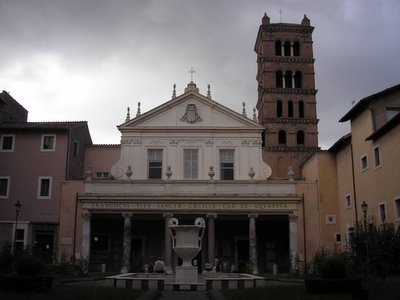
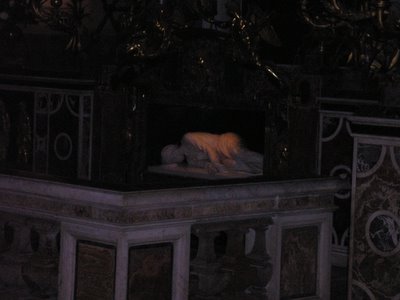
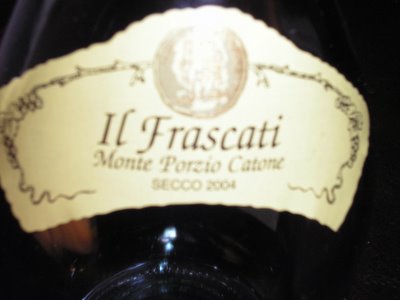







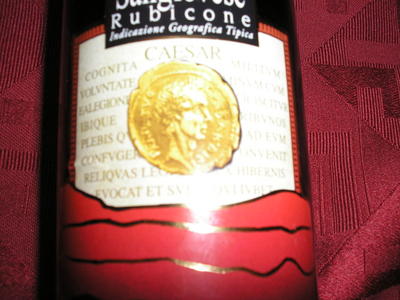

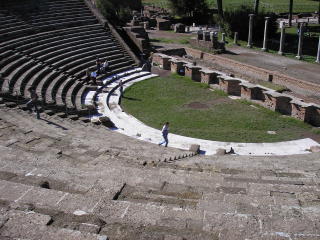 Another shot of the theater, which originally had 3 tiers of seating divided into five cunei (wedges) and a seating capacity of around 2,700; two of the tiers survive
Another shot of the theater, which originally had 3 tiers of seating divided into five cunei (wedges) and a seating capacity of around 2,700; two of the tiers survive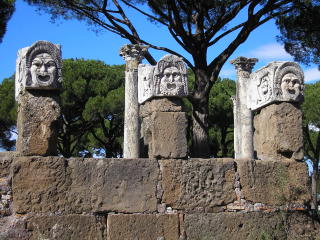 Theater masks
Theater masks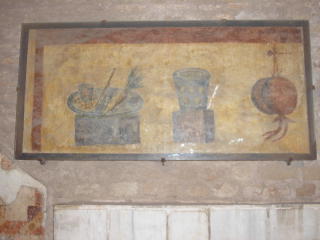 A painting of fruits and vegetables from a Thermopolium, which is very well preserved. The marble countertops are in excellent shape, and two seats flanking the door also survive
A painting of fruits and vegetables from a Thermopolium, which is very well preserved. The marble countertops are in excellent shape, and two seats flanking the door also survive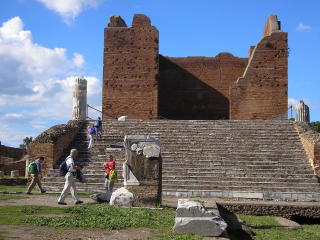 The Capitolium in the Forum. The temple was dedicated to the Capitoline triad (Jupiter, Juno, and Minerva)
The Capitolium in the Forum. The temple was dedicated to the Capitoline triad (Jupiter, Juno, and Minerva)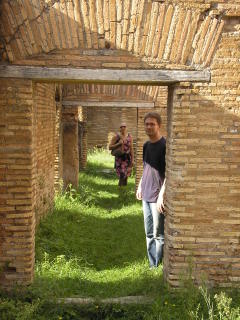 My wife Allison and brother Ryan in the doorways of some buildings on one of Ostia's side streets
My wife Allison and brother Ryan in the doorways of some buildings on one of Ostia's side streets Via Ostiense
Via Ostiense Porta Romana
Porta Romana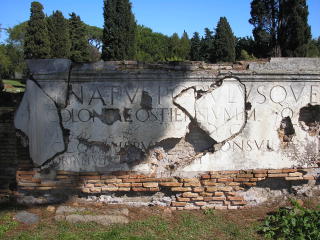 Fragments of the inscription once adorning Porta Romana. Notice 'P. Clodius...', and I believe the 'M' may be from Marcus Tullius Cicero
Fragments of the inscription once adorning Porta Romana. Notice 'P. Clodius...', and I believe the 'M' may be from Marcus Tullius Cicero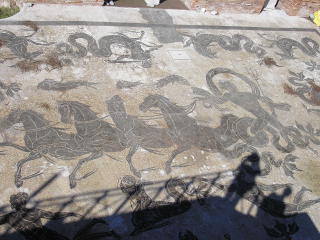 Neptune mosaic from baths
Neptune mosaic from baths Theater
Theater